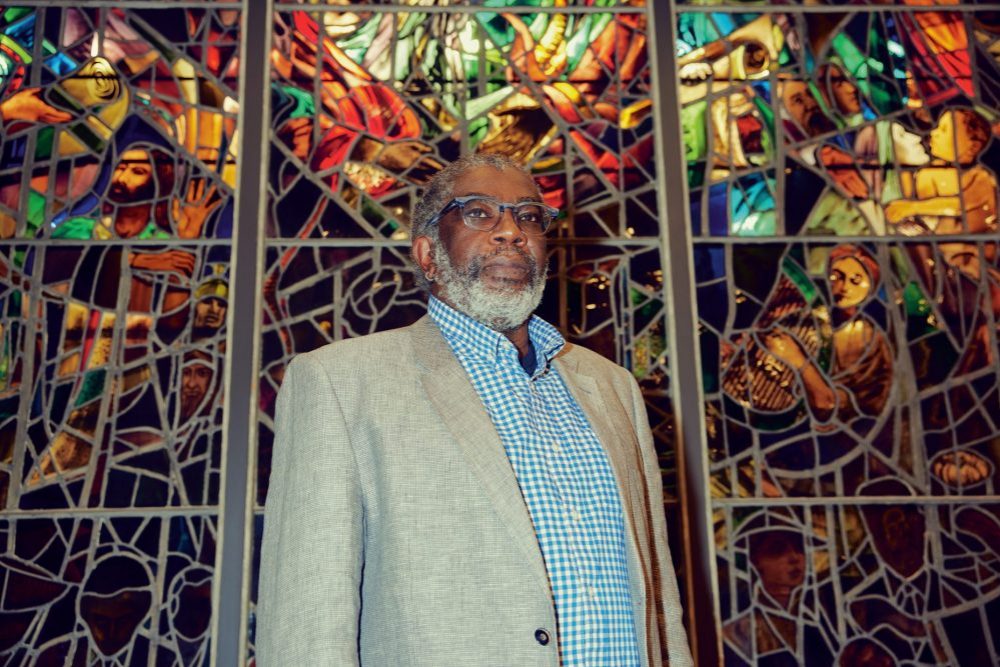In a move that could result in less timely and less transparent access to information about the The United Church of Canada’s decision making, the denomination’s General Council Executive is closing its doors to the media.
For decades, Executive meetings were open to Broadview and its predecessor, The United Church Observer. In mid-February, the Executive decided that media guests are no longer welcome. The group meets multiple times per year to discuss and decide on church-related matters between meetings of the General Council (which meets in full once every three years, and starting in October 2023, holds interim meetings annually).
Instead of being in the room (physically or virtually) with decision-makers, Broadview must now rely on summaries generated by the church’s new press and public relations (PR) lead, Lori-Ann Livingston, and approved by General Council staff. Reports and proposals are available before meetings, but official minutes take a week or longer to appear. If Broadview’s journalists want to contact or speak to any national office staff or Executive members, the church is now requiring that they go through Livingston.
General Council’s top administrator, general secretary Rev. Michael Blair, told Broadview in an interview that the Executive “needs to function as any kind of board of an organization would function. So it’s not a mini-General Council; it’s a board.” Blair said that means “we understand ourselves to be a governing board . . . . And in a governing board you don’t have people sitting over your shoulder watching you do the work. That’s where this has come from.”
The Executive approved the closed-door policy at its Feb. 10-11 meeting. But a week before the Executive adopted the decision, church communications staff informed Broadview that its reporters would not be allowed to attend any part of the meeting, prompting Broadview editor and publisher Jocelyn Bell to send a letter to the Executive, urging the group not to approve the recommendation. Her letter noted that closed-door meetings could lead church members to perceive “that the church is becoming less democratic, less transparent, less open to diversity of opinion, and less united in service of the common good.”
On the other hand, Bell stated, “Journalists help church members understand and appreciate the diversity of views and perspectives that shape [the church’s] decision-making.” She also pointed out that the move makes it harder for Broadview to fulfil some of its obligations under a covenant that the publication and the national church signed in 2013 outlining their relationship, including “the duty to inform the readership of Broadview about the activities and directions of the United Church and other churches and faiths, both in Canada and abroad.”
The letter was co-signed by Broadview board chair Rev. Daniel Benson, minister at Toronto’s East End United Regional Ministry and former executive minister for communications in the General Council Office, as well as by Broadview board member and past United Church moderator Mardi Tindal.
So far, the 18-member Executive has not formally responded. Blair said a response to the letter could take weeks.
Blair put the Executive’s move into the context of the church’s restructuring, which came into effect in 2019 and cut the size of Executive from about 60-plus to 18 members, including the moderator, past moderator and general secretary. He also said that 15 members of the Executive are now elected, not appointed. A report from the Work Flow Working Group to last November’s Executive meeting looked at ways the Executive could change the way it operates. But that group, which produced an Action Plan for Governance Renewal report, neither discussed nor recommended halting media presence at meetings.
Want to read more from Broadview? Consider subscribing to one of our newsletters.
The recommendation to close doors came from the Executive’s business planning committee, including its chair Kit (Kathleen) Loewen, Blair, moderator Rt. Rev. Carmen Lansdowne and Executive members Rev. Arlyce Schiebout and M Chorney. Minutes of their meetings and the actual content of their recommendations have not been released.
The draft minutes of the February Executive meeting are ambiguous, and don’t outline the content of any formal motion, but Blair said Executive approved the decision to keep guests and media out of its meetings through a consensus process. The Executive has been experimenting with the more informal decision-making method, where motions are considered passed when no Executive members question or express a need to discuss the motion.
No one on the business planning committee except Blair was made available to comment on the decision to exclude media from meetings. Livingston also declined a request for comments or interviews with any or all of the elected members of the Executive. None felt comfortable talking to Broadview, Livingston said, until they had media training. Moderators historically receive media training soon after they are elected, but Livingston indicated Lansdowne was also too busy to speak to Broadview.
Broadview has attended at least two Executive meetings since November 2018: in June 2020 and November 2022. The gaps in attendance came during a time when the United Church was restructuring and the pandemic was in full swing. But until now, the publication always had an open invitation to attend.
Benson said he believes that because General Council is open to the public and Executive (GCE) is acting on its behalf, it should be open too. “I’ve always held that one of the hallmarks of the United Church was our commitment to transparency and accountability. . . . Going behind closed doors compromises our integrity, accountability, transparency and credibility. A cynic might wonder what they are trying to hide.”
Tindal said it doesn’t surprise her “that many would prefer not to have reporters looking over their shoulders. I’ve come to understand, though, that this is one price of leadership. My greatest concern with a decision to close meetings of the GCE is that, in my view, it will lead to uninformed speculation and erode trust in the democratic processes of our church.”
More on Broadview:
- The United Church has an ambitious plan to grow its membership
- United Church of Canada sued over alleged abuse in maternity homes
- Multimillion-dollar bequest boosts United Church of Canada finances
One recommendation of the Action Plan for Governance Renewal, received by Executive last November, was to “act in honourable and trustworthy ways to build healthy relationships between the Executive and the Commissioners to the General Council, regional councils, and communities of faith to build mutual trust.” It says “a strategic communications and relational plan aligned to the governance role of the Executive” is needed but should reflect that “we are a church not a corporation.”
However, there are some indications that the Executive may be moving the national church closer to corporate-style approaches to managing information and communication. Budgets to carry out the strategic plan, approved at February’s Executive meeting, point out that General Council office’s two new communications staff will “clarify our ‘brand’, develop targeted messaging, identify key audiences, and increase our outreach through strengthened communications capacity.” The budget for communications staffing is $218,480 and another $100,000 has been set aside for a “Brand Strategy and Outreach Campaign.”
At the same time Executive is excluding media from its meetings, its strategic plan names “building relationships of trust and accountability” as one of the top priorities for finances and staff time.
Blair points to communication platforms run by General Council staff. These include a continuing and expanded GC44 website to keep General Council commissioners informed, as well as continuing meetings with church region presidents. He said the Executive is also exploring the possibility of town halls to hear from the wider church. The goal to keep commissioners better informed, he said, came last year “when the decision was made around the benefits [for United Church employees] and there was a lot of hullabaloo in the church, lots of questions raised about a distrust of the Executive.”
Whether moving more of the Executive’s work into closed sessions succeeds in addressing the problem of eroded trust remains to be seen. In an email, Livingston stated that “the GCE could change [the decision] at any time in the triennium.”
***
Mike Milne is a writer in Owen Sound, Ont.
Thanks for reading!
Did you know Broadview is the only media organization in Canada dedicated to covering progressive Christian news and views?
We are also a registered charity and rely on subscriptions and tax-deductible donations to keep our trustworthy, independent and award-winning journalism alive.
Please help us continue to share stories that open minds, inspire meaningful action and foster a world of compassion. Don’t wait. We can’t do it without you.
Here are some ways you can support us:
Thank you so very much for your generous support! Together, we can make a difference.
Jocelyn Bell, Editor/Publisher, CEO and Trisha Elliott, Executive Director


Comments
Colin MacDonald says:
Shame! Shame on GCE.
Lorrie Beauchamp says:
Not allowing the media to cover the meetings will send the wrong message at the wrong time; people will assume that the "board" has something to hide, and/or does not want to encourage transparency around its decision-making process. Looks bad from any angle. I think the world is wanting a new approach - it's hard to hear the hate spewing from so many of us, but it's also obvious that so many of us need to express our feelings. This puts a new emphasis on feelings, and how certain institutions either respect them or don't; from a capitalist point of view, it makes no sense. From a compassionate point of view, it's essential to moving forward as a community. We need open, honest people who are not afraid to speak the truth, and not use power plays to control its flow. I think Broadview should fight this move!
Bev Suderman says:
The media is so keen on the "Cancel Culture' agenda that I can see why they are not welcome. It would be impossible to have a frank discussion on any issue and not have a media person doing their best to make your life as miserable as possible if you should express an idea they do not agree with. This black / white, for / against, mentality is not helpful in any way.
Sherwood Hines says:
Pretty interesting that at the same time the United Church membership is in steep decline "the Board" decides this is the best time to restrict Broadview from attending - as if dire national secrets are at stake. It's like "the Board" thinks itself most relevant, most important, at the same time as the ship continues to sink. Secretive corporate-management approaches to running the United Church reflect 19th century thinking that has little regard for the realities of the 21st century. R.I.P.